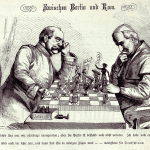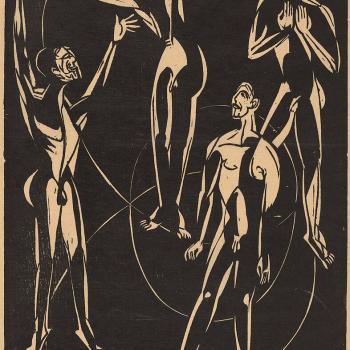
Look at your average internet comment box and you’re in for a treat. Take, for example, a few stand-outs from the Washington Post’s piece on the slow, but seemingly steady, fading away of liberal Protestant Churches that I wrote about a few days ago:
Craig Reynolds
Modern life is hard and the rigor required to find a way through it is tiring. Then at the end, you face the three doors of oblivion or uncertainty or the offering of hope. The results of this study come as no surprise, only the disappointment that many persons prescribed with unassailable dogma are running the show in too many legislative bodies.
rustereoSuccess is not the goal of any true church, and churches and denominations may resemble political parties, but they are very different. Any church that demands more money and more attendance while setting low moral and ethical and political standards for its congregants has failed. Faithfulness won’t pay the bills, but it will provide community and action platforms for a body of believers, regardless of liberal, conservative, or radical labels. Love must be the priority, no matter the doctrine. Measure that.
PeytonCK
I have heard that many Christian conservatives think that God intervened in the recent election and caused Trump to be elected. How can this be? Why would God get involved in our elections in the first place? And if He did, why would he want a known cheat and liar, a grabber of women’s genitals, an adulterer, etc. to be elected president? Can anyone answer this for me because as a Christian/Democrat, I just don’t get it?
Michael Hiller
most likely because Liberals don’t fall for this religious garbage and Conservatives support folks like Joel Osteen. Sort of says it all.
And so on. I’ve been writing on the internet for a few years now—blogging, writing (overlong) Facebook statuses, and otherwise venturing to put my (often undercooked) thoughts out there for others to read. These comments are typical, and, in my experience, fall into two groups: those that restate an already-held, often previously-dismissed by the article or otherwise highly-simplified, stance and those that openly contest the author and / or other commenters in a bid for attention.
The latter constitutes conscious trolling; the former is to allow oneself to reassert one’s ideology over and over—a sort of unintentional act of trolling the original writer and those interested in the topic.
As I’ve written before, the internet shapes us (no surprise there). Partly, it begs us to speak, to voice our opinions in a way previously unthinkable. Just imagine some of the comments above expressed publicly and without anonymity. Speaking and listening compete—try screaming and being attentive to another’s voice at the same time. As the throat opens, so do the ears close shut.
The Internet Age has the propensity to—if it hasn’t already at least once—make trolls of us all: either consciously, as is so common, or unconsciously, as seems even more common. We re-inscribe what we believe; we derail discussion in favor of some ancillary point we find (tangentially) related, but ultimately determinative, captivating. Is any of this new? No. But its breadth and depth expand.
But there is, dare I say, little Christian about it. Every moment we spend giving in to such impulses is another moment we are not asking, like Augustine: quid autem amo, cum te amo? What, then, do I love when I love you [my God]?













